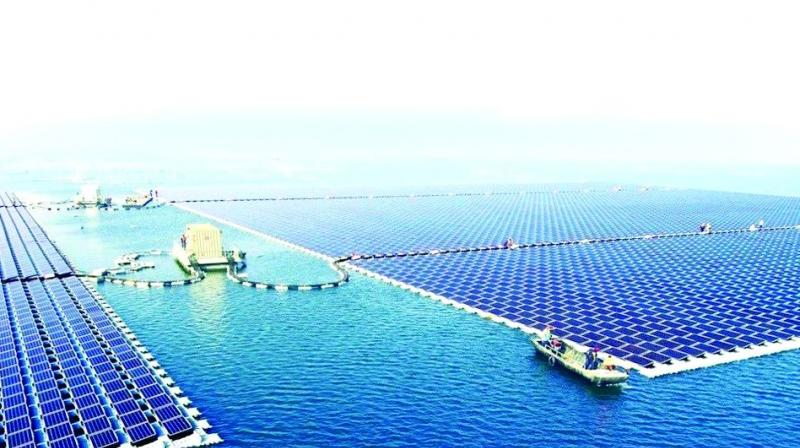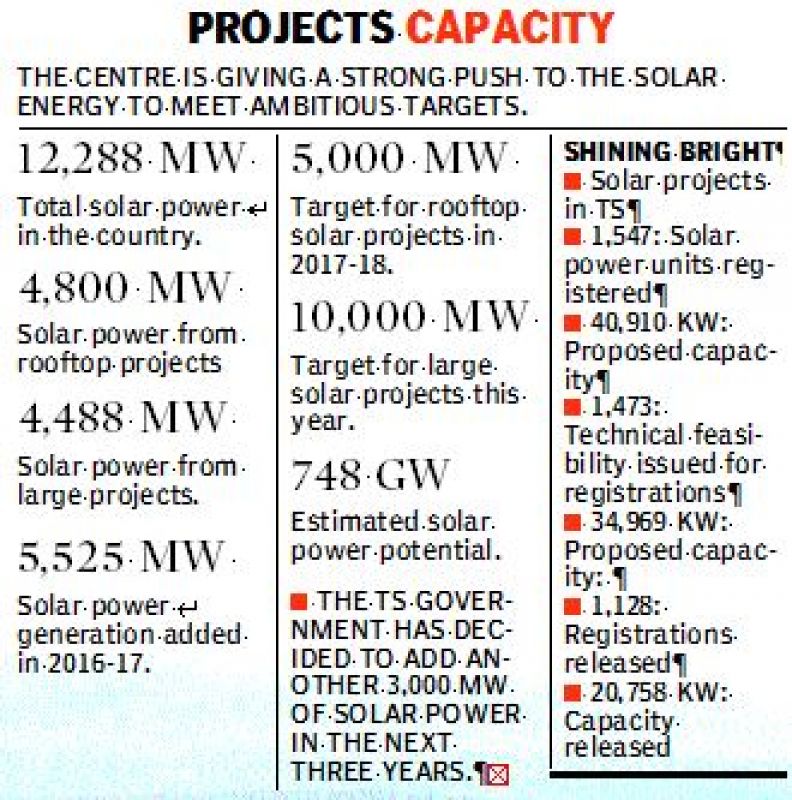To save discoms, southern states are blocking the sun
Solar power sale discouraged to protect power distribution firms.

Hyderabad: While the Centre is encouraging the setting up of solar power units, state governments are discouraging sales in an effort to protect power utilities. Some states are delaying permission to set up solar plants while some others are imposing restrictions.
Recently, the Tamil Nadu government proposed restrictions on solar rooftop units. Tamil Nadu used to top the country in solar power generation but is now down at the third spot with 1,692 MW, behind Andhra Pradesh (1,867 MW) and Rajasthan (1,812 MW). They are followed by Telangana state (1,287 MW) and Gujarat (1,157 MW).
 Infographic
Infographic
The advent of solar power plants and open access system — where users can purchase power from any source - has pegged back power sales by state-run distribution companies.
The Tamil Nadu government has proposed to allow residents to install a solar plant which can generate only 50 per cent of the contracted demand. Another proposal is to fix the rate for solar power generated by rooftop plants at half the lowest price paid to solar firms.
These proposals have been sent to the TN Electricity Regulatory Commission for approval. Under current policies, there are no restrictions on the capacity of solar plants. The power remaining after sales to the domestic, commercial and industrial sectors can be sold to the discoms.
Discoms are paying for the power at rates fixed by the Union ministry of new and renewable energy resources. Many discoms are suffering financial loses.
States are finding ways to improve the sale of power by discoms. To discourage commercial and industrial establishments from purchasing power in the open access system, many states are imposing additional surcharges. This is pushing up the cost of power in the open access system to levels being charged by discoms.
In this backdrop, all state governments, particularly in the south, are awaiting the decision of the TN Electricity Regulatory Commission on curbs on solar power. If the TN commission accepts the proposals, other states may follow the same.
A senior officer of the Telangana energy department said the duty of the regulatory commission was to protect the interests of the consumers and the discoms; they should give first priority to the interests of consumers. He said the proposals of Tamil Nadu government were against the Centre’s solar power policy.
